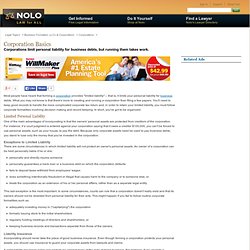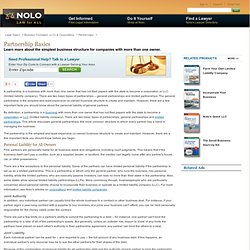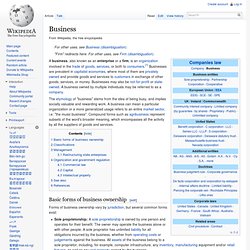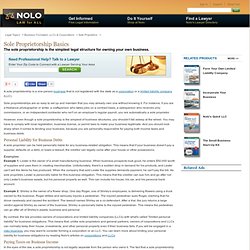

Corporation. In American English the word corporation is widely used to describe large business corporations.[4] In British English and in the commonwealth countries, the term company is more widely used to describe the same sort of entity while the word corporation encompasses all incorporated entities.

In American English, the word company can include entities such as partnerships that would not be referred to as companies in British English as they are not a separate legal entity. Despite not being human beings, corporations, as far as the law is concerned, are legal persons, and have many of the same rights and responsibilities as natural people do. Corporations can exercise human rights against real individuals and the state,[5][6] and they can themselves be responsible for human rights violations.[7] Corporations can be "dissolved" either by statutory operation, order of court, or voluntary action on the part of shareholders. History[edit] Mercantilism[edit] Corporation Basics. Most people have heard that forming a corporation provides "limited liability" -- that is, it limits your personal liability for business debts.

What you may not know is that there's more to creating and running a corporation than filing a few papers. You'll need to keep good records to handle the more complicated corporate tax return and, in order to retain your limited liability, you must follow corporate formalities involving decision making and record keeping. In short, you've got to be organized. Limited Personal Liability One of the main advantages of incorporating is that the owners' personal assets are protected from creditors of the corporation. Exceptions to Limited Liability There are some circumstances in which limited liability will not protect an owner's personal assets. This last exception is the most important. Partnership Basics. A partnership is a business with more than one owner that has not filed papers with the state to become a corporation or LLC (limited liability company).

There are two basic types of partnerships -- general partnerships and limited partnerships. The general partnership is the simplest and least expensive co-owned business structure to create and maintain. However, there are a few important facts you should know about the personal liability of general partners. By definition, a partnership is a business with more than one owner that has not filed papers with the state to become a corporation or LLC (limited liability company). There are two basic types of partnerships: general partnerships and limited partnerships. The partnership is the simplest and least expensive co-owned business structure to create and maintain. Personal Liability for All Owners First, partners are personally liable for all business debts and obligations, including court judgments.
Joint Authority Joint Liability. Business. The etymology of "business" stems from the idea of being busy, and implies socially valuable and rewarding work.

A business can mean a particular organization or a more generalized usage refers to an entire market sector, i.e. "the music business". Compound forms such as agribusiness represent subsets of the word's broader meaning, which encompasses all the activity by all the suppliers of goods and services. Basic forms of business ownership[edit] Forms of business ownership vary by jurisdiction, but several common forms exist: What is a partnership and how do I create one? Sole Proprietorship Basics. A sole proprietorship is a one-person business that is not registered with the state as a corporation or a limited liability company (LLC).

Sole proprietorships are so easy to set up and maintain that you may already own one without knowing it. For instance, if you are a freelance photographer or writer, a craftsperson who takes jobs on a contract basis, a salesperson who receives only commissions, or an independent contractor who isn't on an employer's regular payroll, you are automatically a sole proprietor. However, even though a sole proprietorship is the simplest of business structures, you shouldn't fall asleep at the wheel. You may have to comply with local registration, business license, or permit laws to make your business legitimate.
And you should look sharp when it comes to tending your business, because you are personally responsible for paying both income taxes and business debts. Personal Liability for Business Debts Examples Example 2: Shirley is the owner of a flower shop. Entrepeneur's world.